Current marketing trends place too much emphasis on protein. The fact is that the vast majority of Americans get plenty of this macronutrient regardless of the diet they follow. However, there are situations that require certain individuals to pay a little more attention to their protein intake. Athletes need more protein than those who lead a sedentary lifestyle – about 1.2 grams of protein per kilogram of body weight compared to an average of 0.8 grams per kilogram.
Other health conditions or goals may increase a person’s daily protein quota for certain periods of time. Vegan foods can pack as much protein as animal-based foods, and these foods can be more varied than scooping plant-based protein powder into everything (although that works, too). Here are all your plant-based protein questions answered and 10 high-protein vegan recipes to hit your macros every day.
Do vegetarians get enough protein?
Most vegetarians don’t have to worry about getting enough protein. All whole foods naturally contain protein, so if you eat a mostly whole-food, plant-based diet and consume enough calories to meet your needs, there’s no need to crunch numbers—you’ll get enough protein without even thinking about it.
 @veganbodybuildingandfitness/Instagram
@veganbodybuildingandfitness/Instagram
Calculating protein requirements is fairly easy for those who enjoy the quantitative aspect of nutrition. The USDA’s recommended daily allowance is 0.36 grams of protein per pound of body weight. To calculate your protein needs, multiply your weight in pounds by 0.36 and the result is how many grams of protein you need per day. For example, a 130-pound woman should aim for 46.8 grams of protein per day, and a 170-pound man should aim for 61.2 grams of protein per day.
Note: This formula is designated for the “average” person—someone who can exercise occasionally but not at high intensity or most of the week. Those who are more active—those who exercise at moderate to high intensity at least four days a week—should aim for 0.7 grams of protein per pound of body weight. This is a general guideline—to truly optimize performance, a plant-based dietitian can help you fine-tune your exact protein needs based on your activity level.
Given this average daily protein requirement of between 47 grams and 61 grams – it’s not difficult for vegetarians to get enough protein naturally. Let’s say you eat a bowl of oatmeal with nut butter every morning. The soy or pea milk you use to cook oats contains eight grams of protein. Half a cup of oats contains five grams of protein. And a tablespoon of peanut butter will provide an additional four grams of protein. In total, that’s 17 grams of protein for just one breakfast. Add lunch, dinner and snacks and you’re well into the protein comfort zone.
Where to find vegan protein?
It bears repeating: All whole foods contain some amount of protein. Yes, there are drastic differences in protein content between foods, but technically speaking, every food contains protein. In fact, if someone ate just 2,000 calories worth of broccoli per day, they would still get 146 grams of protein. (Please, don’t actually try to eat 2,000 calories of broccoli—we’re just using this example to prove a point.) Vegetables also contain protein, and you don’t need to rely on animals for protein.
Common sources of vegetarian protein include nuts and seeds, grains, beans and legumes, seitan, plant-based protein powders, soy or pea milk, and plant-based meats. There is a wide variety to choose from, making vegan diets boring and bland.
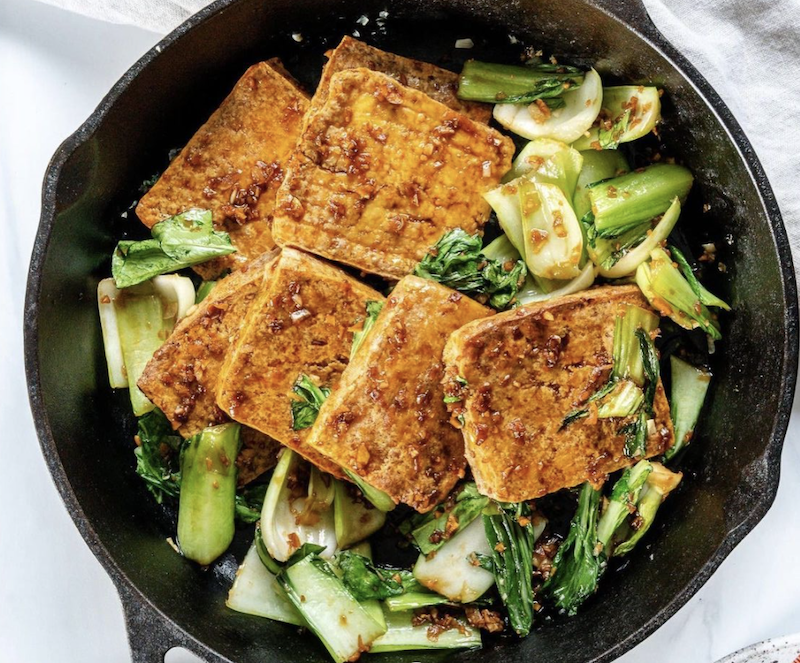 @plantbasedonabudget/Instagram
@plantbasedonabudget/Instagram
High protein vegetarian food
First, let’s define what high protein means. There’s no technical or legal definition for high protein—which is why you’ll see it slapped on virtually any food product—but for our sake, we’re specifying eight grams per single serving. Why? The dairy industry touts cow’s milk as a high-protein food, and one cup of cow’s milk (as well as pea or soy milk) contains eight grams of protein. So, anyone arguing that eight grams isn’t high protein can take it with the dairy marketing giants.
Plant-based meats set a new bar for high-protein plant foods. Conventional vegan burger patties and other beef alternatives provide up to 20 grams of protein, and plant-based butchers are outpacing store-bought options with protein numbers in the 20s. For example, The Very Good Butcher Ribs boasts 27 grams of protein per 100-gram serving. With only 150 calories and 3.5 grams of fat, this nutritional profile is unmatched compared to beef or pork-based ribs that come in at 230 calories, 17 grams of fat and 18 grams of protein.
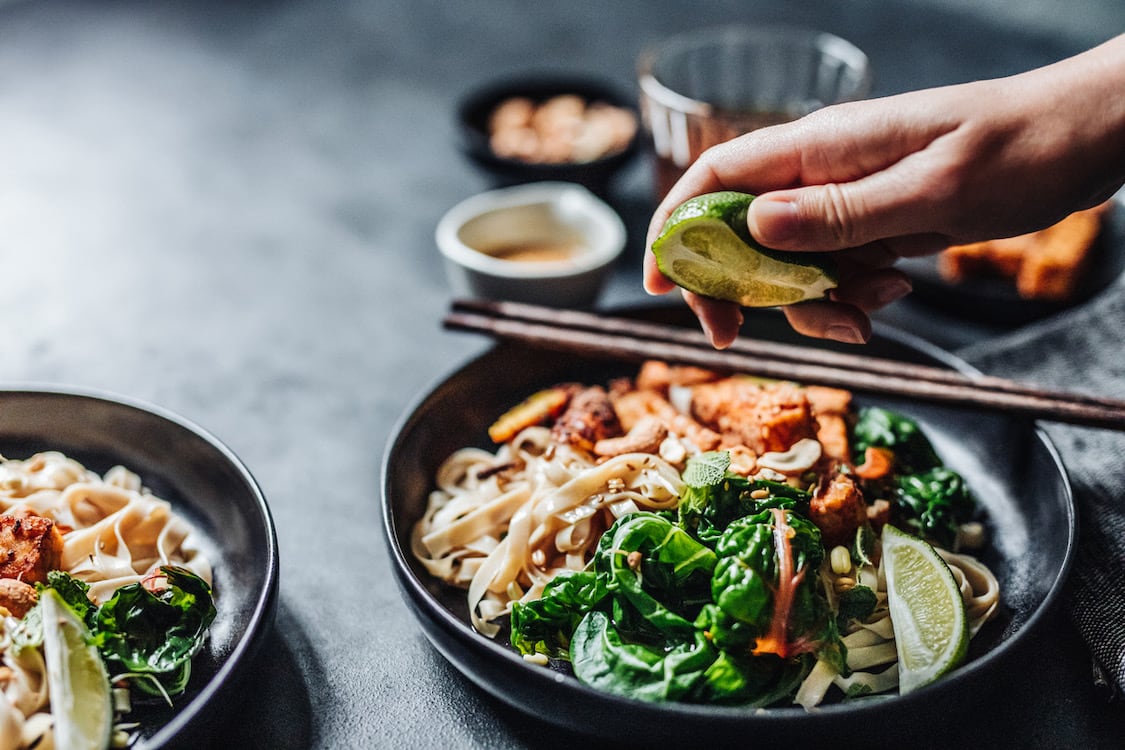 Getty Images
Getty Images
Vegan protein powders can also provide a significant protein boost. Most brands range from 18 grams to 30 grams of protein per serving. In a pinch, adding a scoop to a smoothie or bowl of oats can virtually guarantee you’ll hit your protein quota.
Whole plant-based sources of protein include tofu, quinoa, lentils, soy and pea milk, and peanut butter. Yes, while other nut butters contain moderate amounts of protein, old-school peanut butter reigns supreme with this macronutrient.
10 High-Protein Vegan Recipes
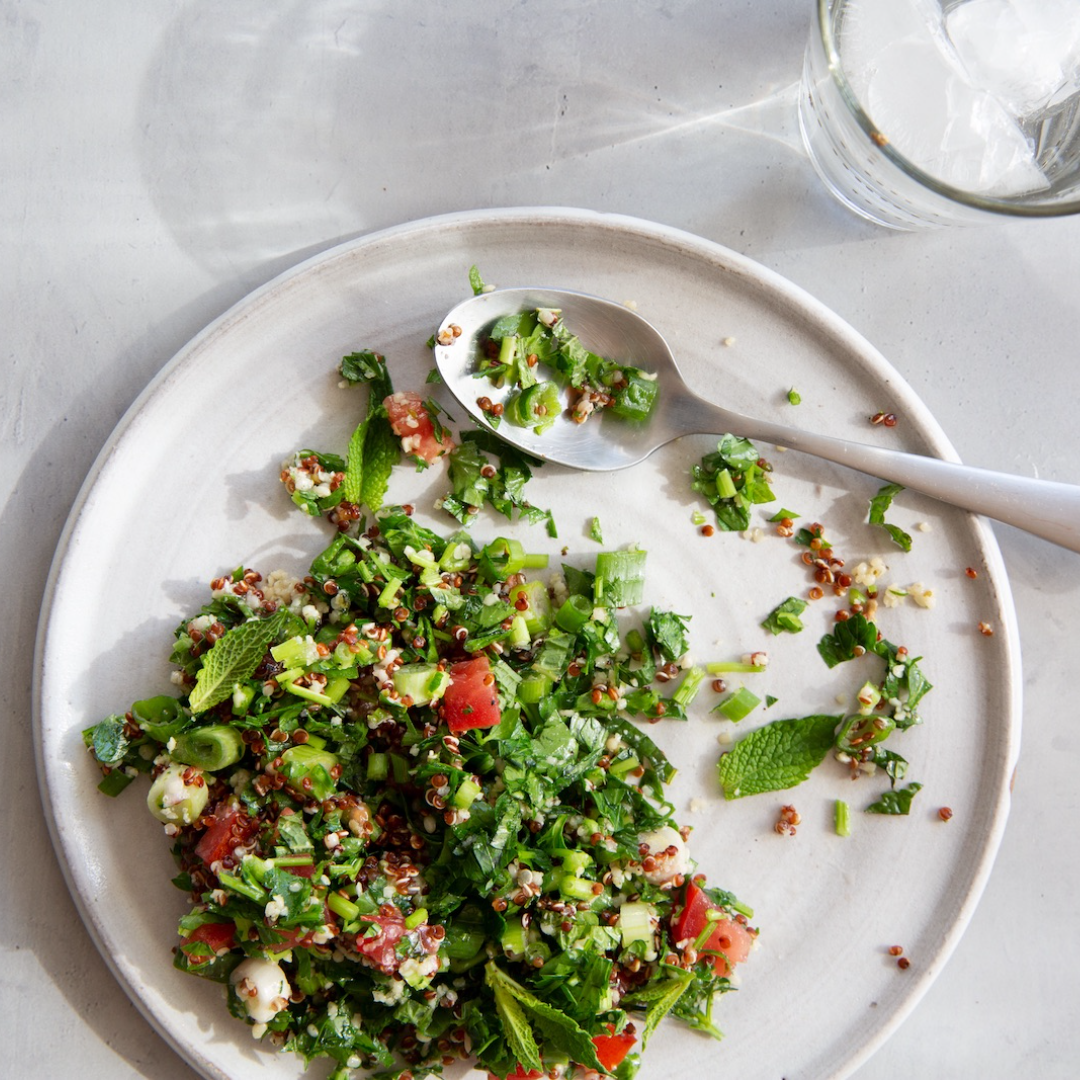
1 High-Protein Vegan Quinoa Hemp Tabouli
Combine a protein-heavy grain like quinoa with an equally potent seed like flax, and you’ve got a protein-packed grain-and-herb salad like tabouli. Scoop it into warm pita bread or spoon it over a Mediterranean-inspired Buddha bowl for added texture, flavor and nutrition.
Get the recipe
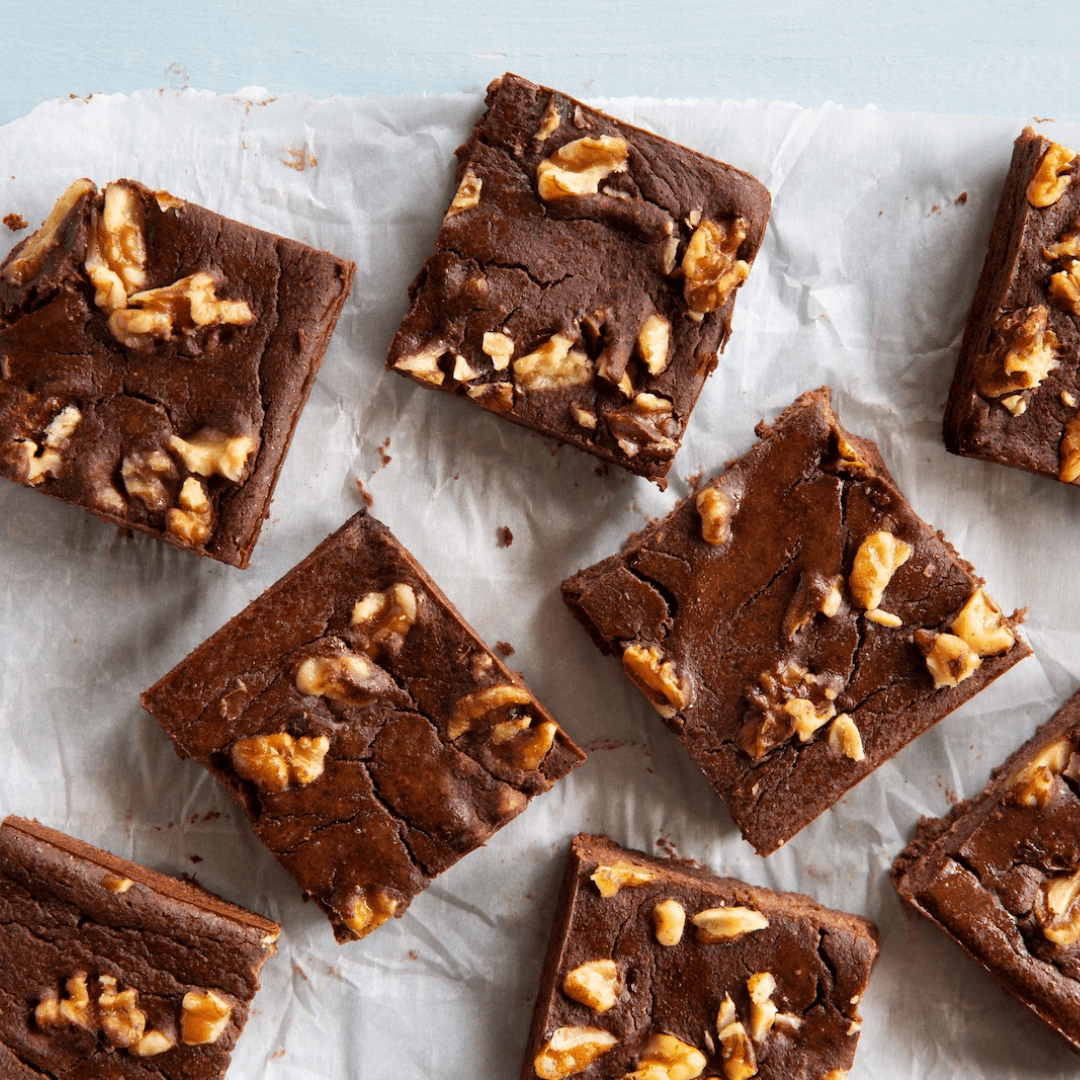
2 Vegan and Gluten-Free Black Bean Brownies
Dessert shouldn’t be the only meal you rely on to reach your protein goal, but a protein-heavy dessert doesn’t hurt. These fudgy brownies not only include black beans but also provide a moderate amount of protein with quinoa flour and a healthy dose of chia seeds and walnuts. Wash it down with a glass of cold soy milk and your modest dessert carries the protein equivalent of a small meal.
Get the recipe
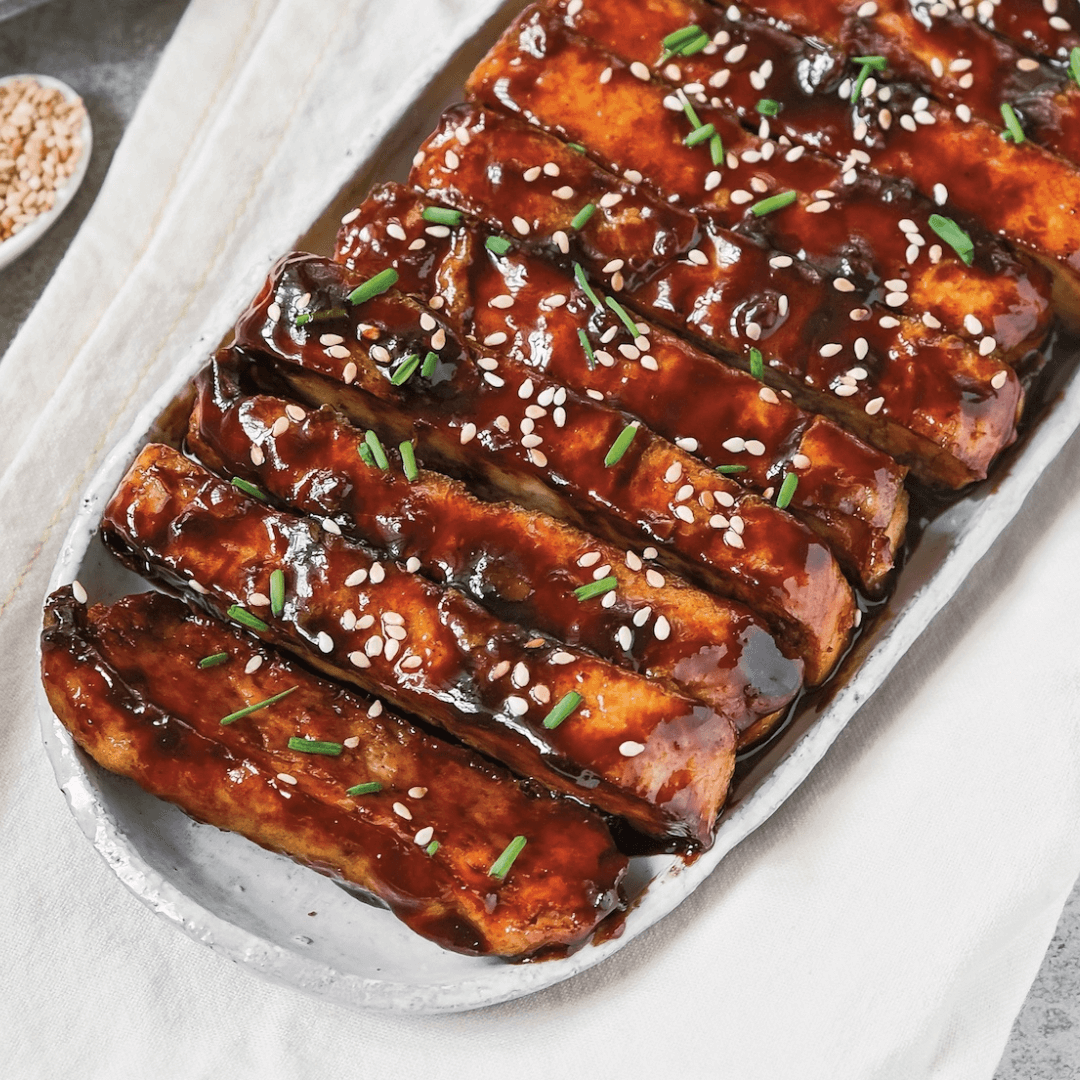 Zika U
Zika U
3 Vegan Sticky Sweet Char-Siu Tofu
The protein content of tofu varies depending on the type of tofu – silken tofu weighs around four grams while extra firm is closer to nine grams. Grab a high-protein tofu—like wildwood—and you’ll be consuming more than 14 grams per serving. The point is, tofu is naturally high in protein, but sometimes we crave a preparation beyond our everyday scramble or air-fryer technique. These seared slabs of tofu are bold in flavor and high in protein. Go ahead, have seconds.
Get the recipe
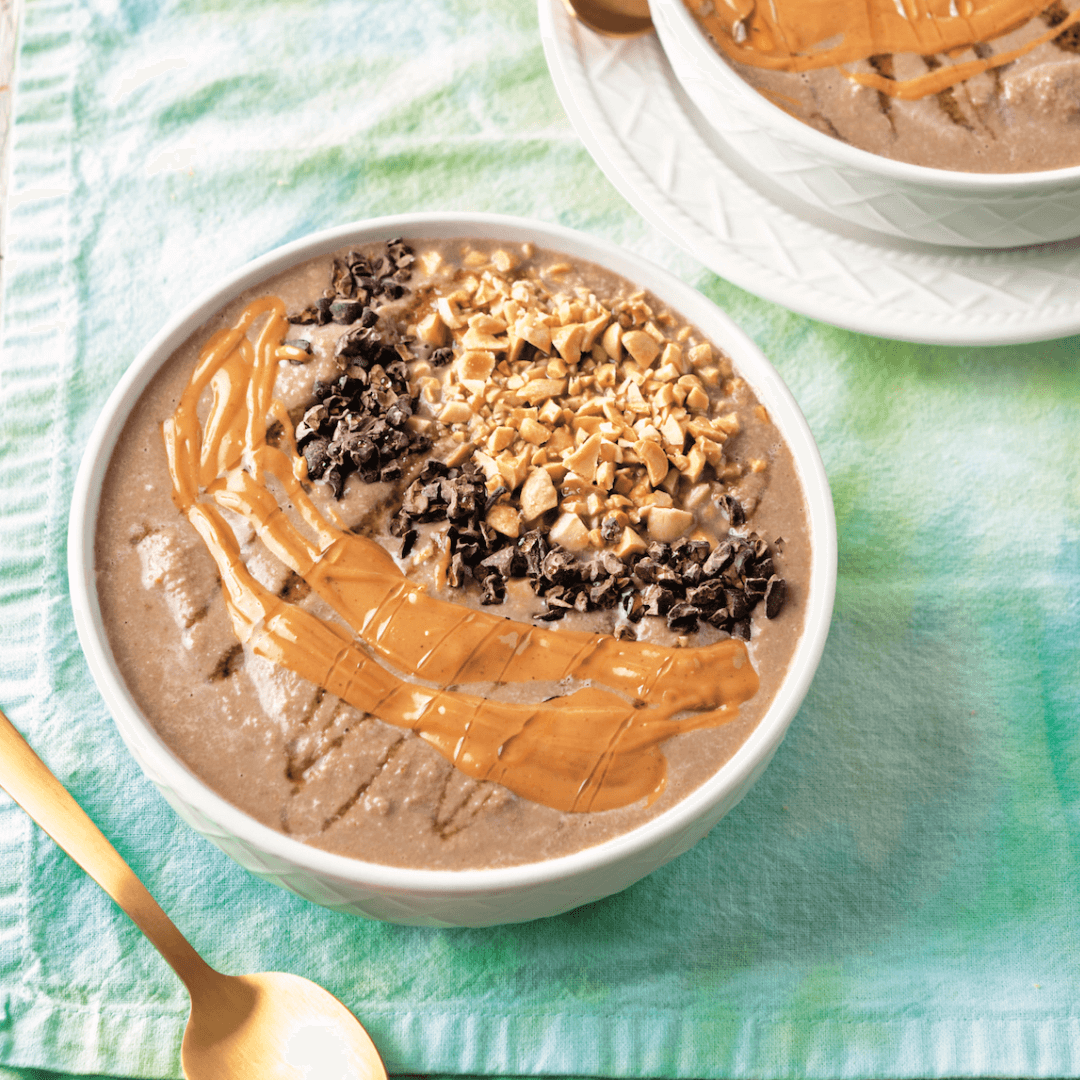 Jackie Soban
Jackie Soban
4 Chocolatey Vegan Peanut Butter Smoothie Bowl
go go? Dilute this high-protein smoothie bowl with banana, chocolate plant-based protein powder, and creamy peanut butter with a little extra soy or pea milk for a slushy breakfast or post-workout pick-me-up. No matter how you take it, the protein count will double.
Get the recipe
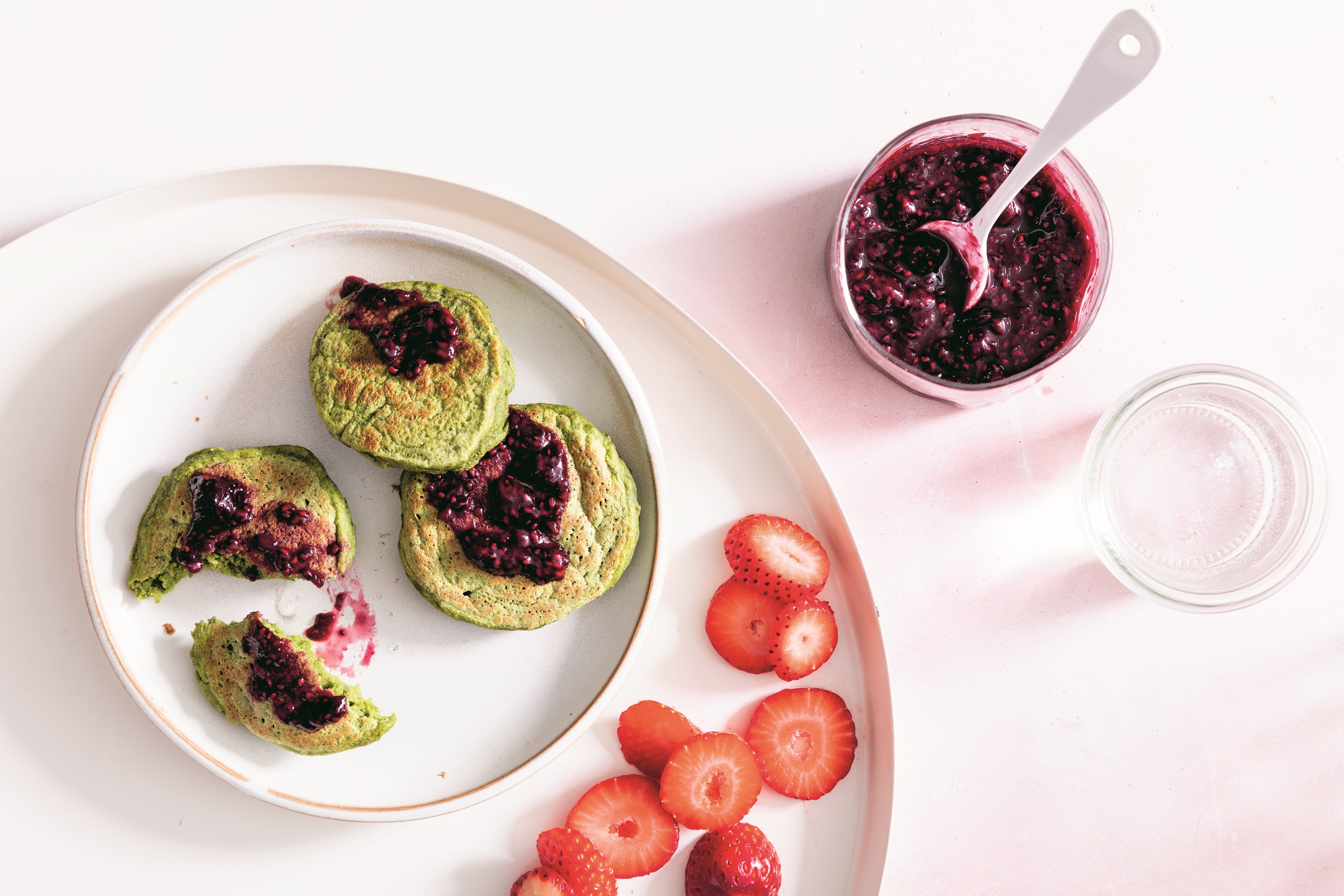
5 Vegan Protein Pancakes with Spinach and Chia
Sweet and healthy enough for breakfast, this morning staple relies on spinach and chia seeds for a powerful protein boost. Not into chia? Use mini vegan chocolate chips instead or add a dash of your favorite plant-based vanilla protein powder to your batter.
Get the recipe
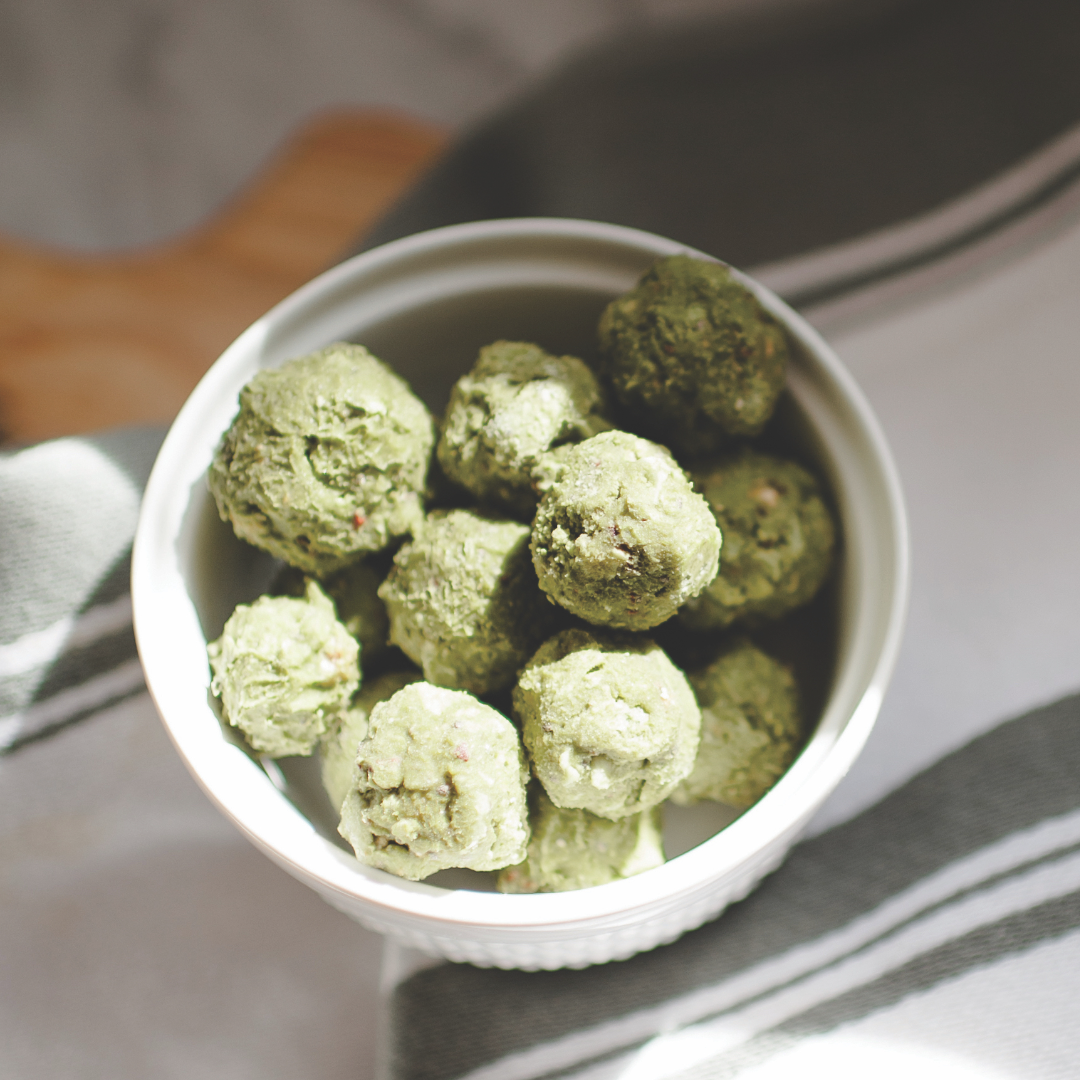 Karina Skrobecki Photography
Karina Skrobecki Photography
6 Two-Step Vegan Snickerdoodle Energy Bites
These easy, healthy, cookie-inspired energy bites are made with almond butter for a nutty, slightly sweet, protein-packed snack perfect for busy days. Enjoy between long hikes, summer beach days, or target runs.
Get the recipe
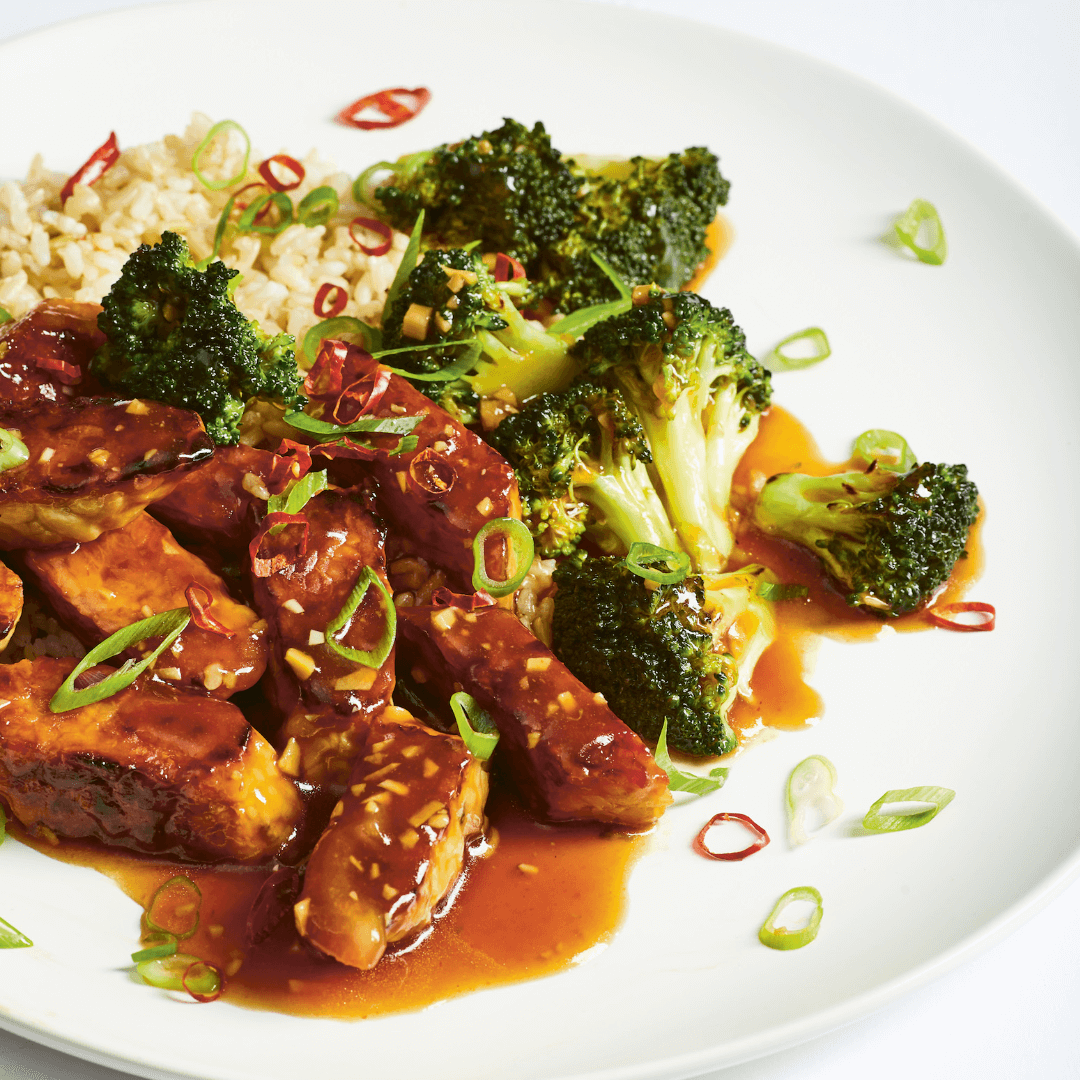 Isa Chandra Moskowitz
Isa Chandra Moskowitz
7 Beefy Vegan Tempeh and Broccoli
While we wait for chains like Panda Express to offer a plant-based beef and broccoli alternative, this meaty tempeh version will do just fine. Tempeh is a long-lasting vegan protein source made from fermented soybeans. A three-ounce serving clocks in at 18 grams of protein. Combine that with a hefty serving of broccoli and you’ve got a high-protein meal that’s simultaneously itching for takeout.
Get the recipe
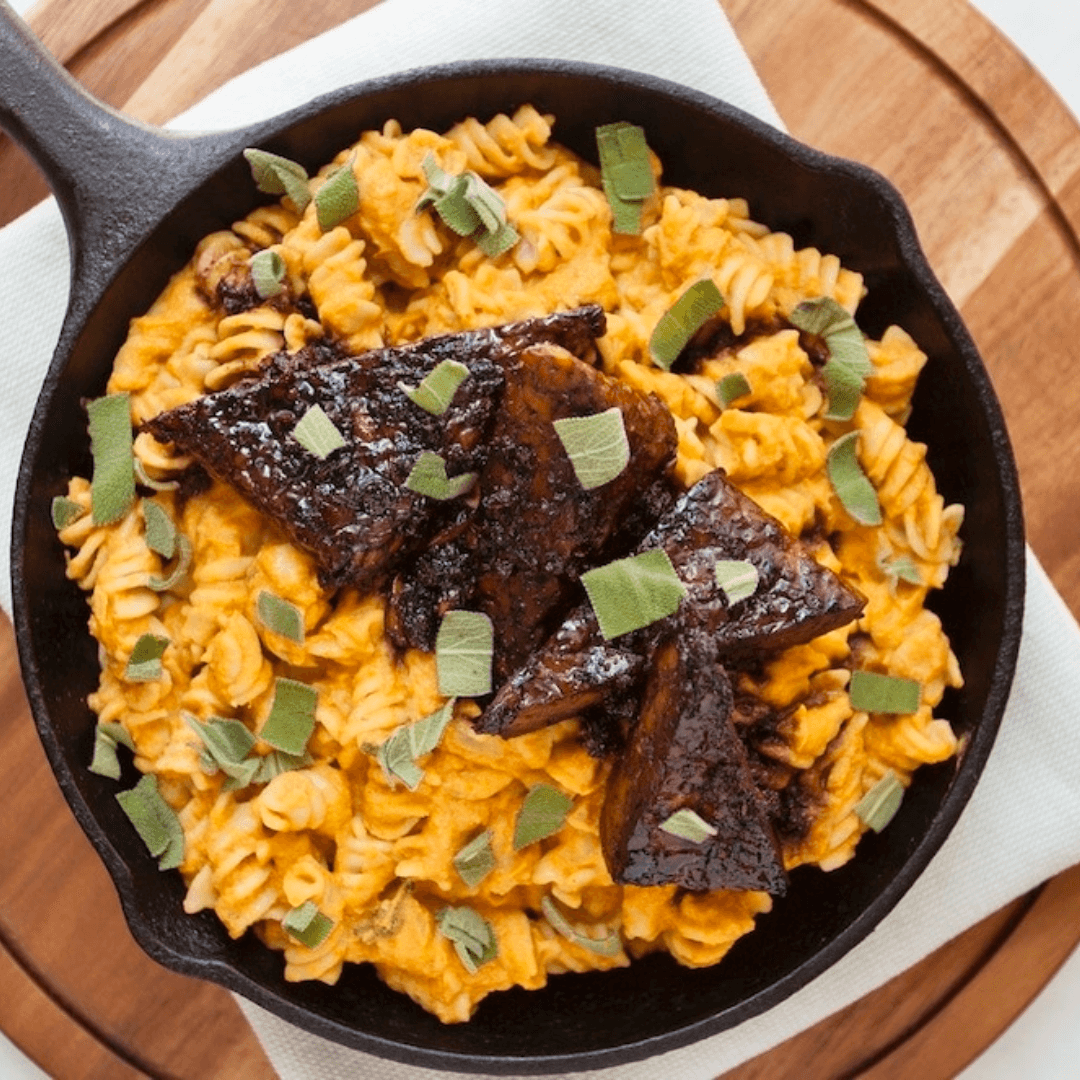 Amy Angelou
Amy Angelou
8 Vegan Pumpkin Sage Pasta with Blackened Tempeh
Yes, tempeh provides plenty of plant-based protein, but to really boost the nutrition, choose a bean-based pasta like banja. A healthy two-ounce serving contains an impressive 11 grams of protein thanks to the chickpea flour base. Think of this comfort food as a grown-up version of mac and cheese with hot dog slices.
Get the recipe
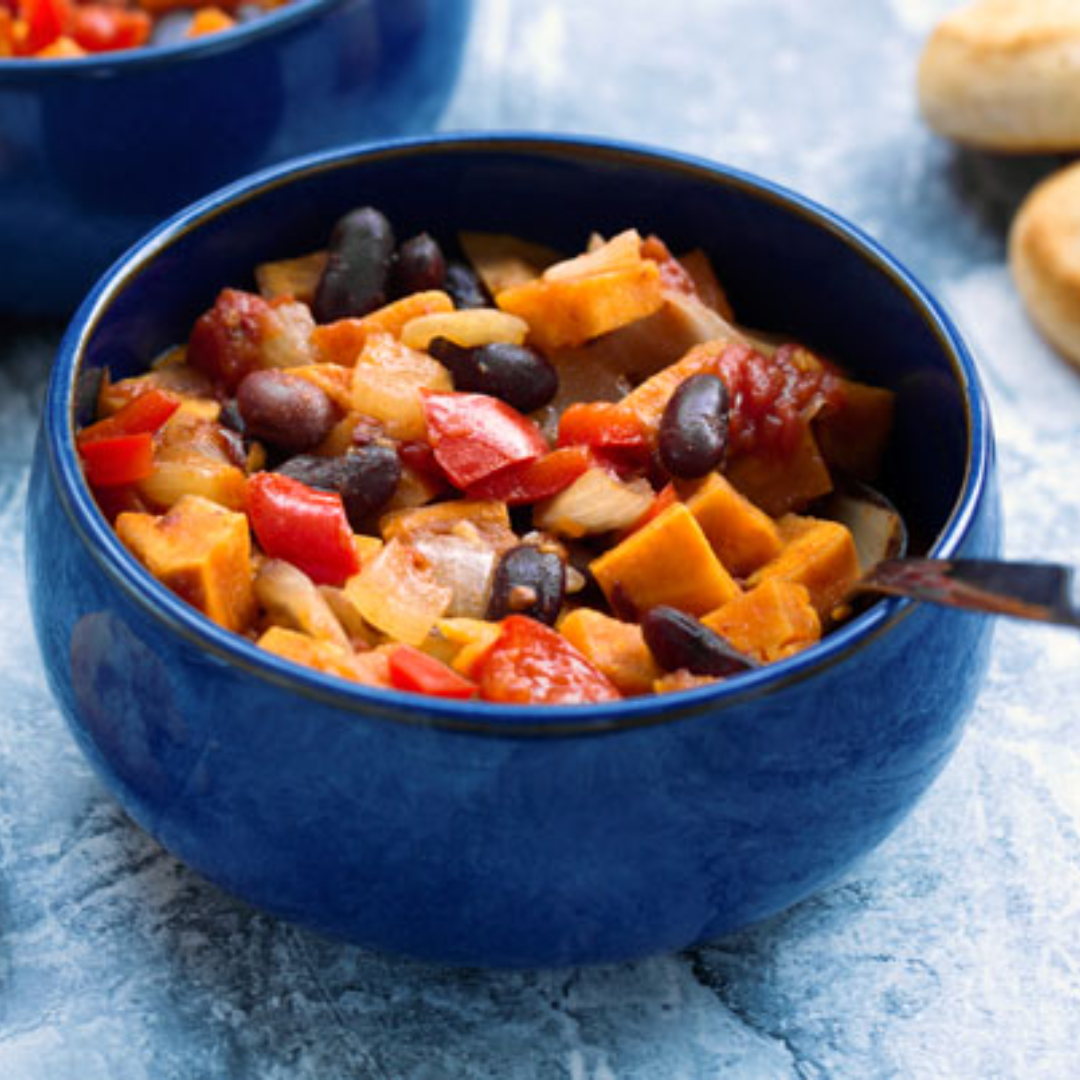 Hannah Kaminsky
Hannah Kaminsky
9Vegan Sweet Potato Chili
After you’ve been vegetarian for a while, you’ll realize that staple foods don’t have to provide the majority of your protein. Sides can be enough to provide both essential nutrients and satiety. Pair these delicious, slightly sweet and meaty baked beans with steamed collards and black corn for an indulgent meal made at its best.
Get the recipe
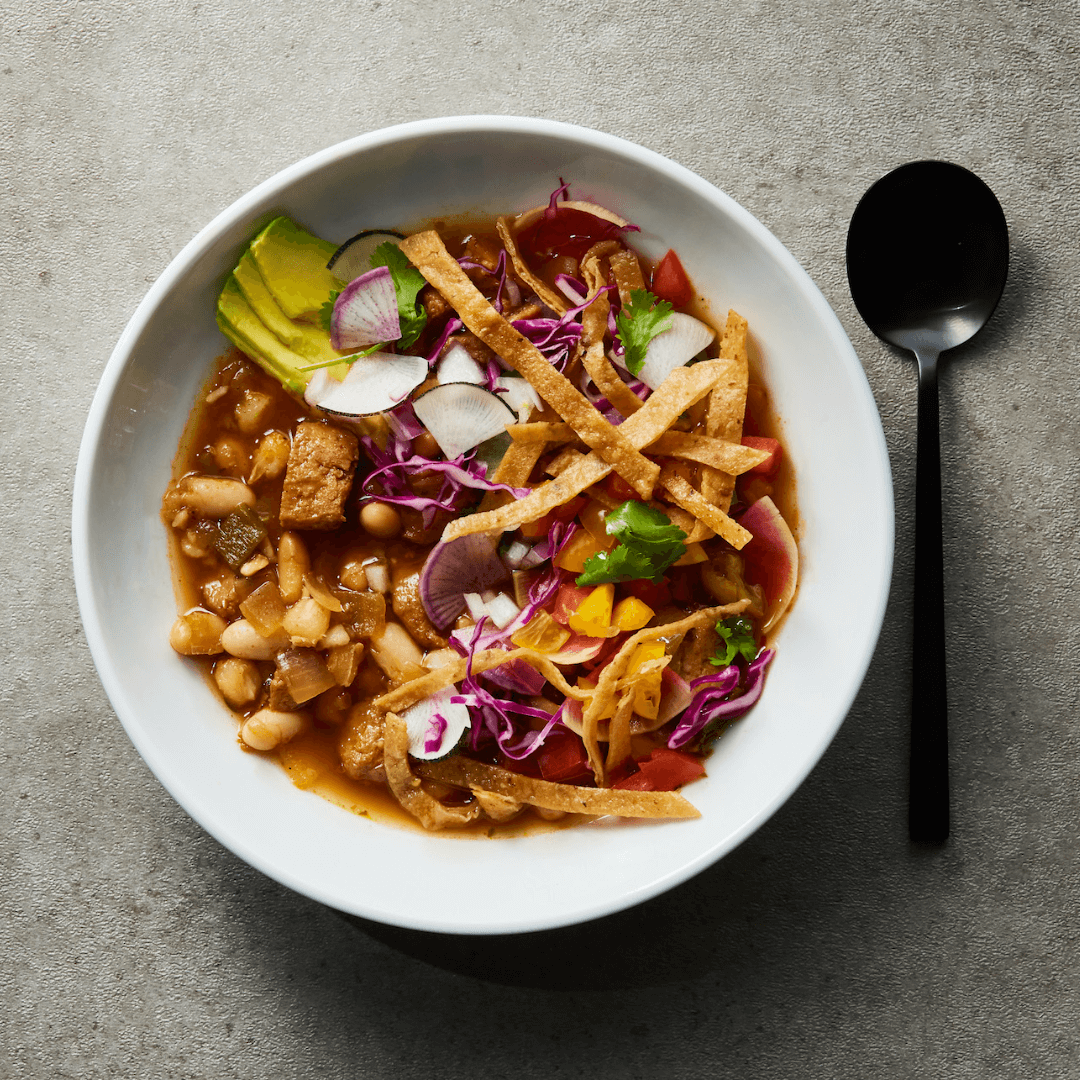 Terry Hope Romero
Terry Hope Romero
10 Vegan White Bean and Pozole Verde
Seitan stands in for traditional animal products in this belly-warming pozole. Meaty bits made from essential wheat gluten give this hearty stew plus 18 grams of protein the necessary structure and chew. Couple that with a can of creamy and protein-rich white beans, and this soup will eat like a meal.
Get the recipe


